The views expressed in our content reflect individual perspectives and do not represent the authoritative views of the Baha'i Faith.
Welcome to a three-part series that chronicles a man’s transformation from being the rising leader of the white nationalist movement to an advocate for anti-racism. Read part 1 and part 2.
The power of transformation. That’s what comes to mind when I think about Derek Black. In February when I went to hear Derek, a former rising leader in the white nationalist movement, speak, I learned about how he went from championing an ideology of hate to becoming a vocal advocate for racial justice and unity.
After his talk, I reflected on how he didn’t let guilt paralyze him from trying to work to alleviate the suffering that his ideology has caused. And, he takes ownership and responsibility for his actions — knowing that although he can’t change his past, he’s working towards building a more equitable, just future.
But I still had so many questions about how he’s working to eliminate racial prejudice in his individual life, in his community, and on an institutional level. I was curious about this because Baha’is believe that change is needed in the structures of society in order to bring unity and justice for all. The Baha’i Writings say:
The principle of the Oneness of Mankind—the pivot round which all the teachings of Baha’u’llah revolve—is no mere outburst of ignorant emotionalism or an expression of vague and pious hope. Its appeal is not to be merely identified with a reawakening of the spirit of brotherhood and good-will among men, nor does it aim solely at the fostering of harmonious cooperation among individual peoples and nations. Its implications are deeper, its claims greater than any which the Prophets of old were allowed to advance. Its message is applicable not only to the individual, but concerns itself primarily with the nature of those essential relationships that must bind all the states and nations as members of one human family. It does not constitute merely the enunciation of an ideal, but stands inseparably associated with an institution adequate to embody its truth, demonstrate its validity, and perpetuate its influence. It implies an organic change in the structure of present-day society, a change such as the world has not yet experienced… – Shoghi Effendi, The World Order of Baha’u’llah
Thankfully, when I reached out to him, Derek was kind enough to answer my questions:
Radiance Talley: Are you still in touch with the friends that educated you in college or have you adopted a new community?
Derek Black: Yep! The primary person arguing against the specific points of white nationalism is now my significant other. And Matthew Stevenson [the Jewish man who invited Derek to his Shabbat dinners] lives in the same region as me, and we see each other about once a month. Another friend from college lives in town and we hang out often. I have also met many new people over the last [few] years who are important friends from different parts of my life.
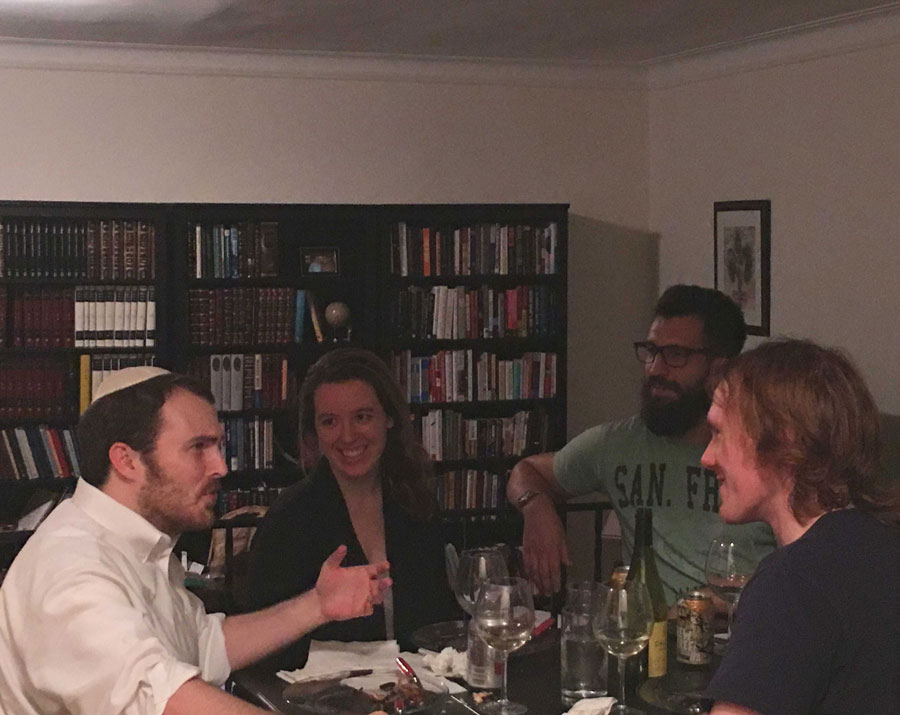
RT: How would you characterize or describe the diversity of your friendships and social circles now?
DB: My friend circles are still generally majority-white largely due to the academic institutions I’ve lived in also maintaining white majorities due to systemic issues. But my friendships have continued to grow over the last decade and I work hard to try not to end up in white-only rooms. There’s a real impulse in academia and lots of majority-white social circles to isolate themselves, move to segregated neighborhoods, etc. and I think that’s a very corrosive behavior.
RT: What do you believe are the major benefits of integration for society?
DB: I don’t think ethnic or racial enclaves are inherently bad, and recognize that they’re often a vital resource particularly for people who are broadly discriminated against in society. But there’s a historical hoarding of wealth and resources in segregated white neighborhoods that doesn’t take any effort to perpetuate. The result is dramatically segregated cities across the U.S, where the predictable outcomes of poverty are pathologized as being something expected from black and brown people, rather than the result of exclusion. Integration in that context is a way to unlock that exclusive access to wealth.
RT: African Americans have faced systemic and institutionalized racism and oppression for hundreds of years. In what light had your upbringing taught you to see black people? How and when did it change? If it did change, what were the catalysts for that change?
DB: My family’s ideology was deeply anti-black, founded on many of the common anti-black stereotypes that have justified violence and oppression against African Americans for centuries. They justified these beliefs with the same pseudo-science that was developed in the 19th and early 20th centuries. A lot of the hard conversations in college were in accepting that all these defenses were false and that African Americans are one of the most resilient groups in America despite racist policies designed to hurt them. Since then deprogramming that implicit (and explicit) anti-black racist assumptions was one of my focuses for years. I work with black activists now, I have lived in integrated neighborhoods for years, tutored black and white kids in local schools, and I work with a local center, in particular, to work on racial equity policy.
RT: How would you describe your process of continued growth and learning?
DB: My life since 2013 has been centered on grad school, so lots of learning constantly. Since I first spoke out in 2016, I have oriented my work more closely to racial equity work. My dissertation looks at how ideas of race and the ideology of racism developed in the early modern period and its medieval origins, and particularly how oppressive hierarchies come out of attempts to justify exploitation. I work a lot with advocates and activists and try to learn from the work that’s been done for so many years already.
RT: Collectively, how do we dismantle those longstanding institutions and systems that maintain and spread white supremacist ideology and segregation?
DB: I don’t want to presume to have the answers here, but the answer for me is to one, seek out the people who have been doing racial equity work for years and ask how I could use my platform to be helpful. The answers I have found are that racial inequality has been created by discriminatory policy choices, often going back centuries. The answer to those choices now is a policy that takes racial inequality into account in housing policies, affirmative action, education funding, anti-discrimination in hiring. Secondly, I spend a lot of time working with groups like Facing History and Ourselves to produce middle and high school curricula that emphasize individual choice and moral responsibility for other people.
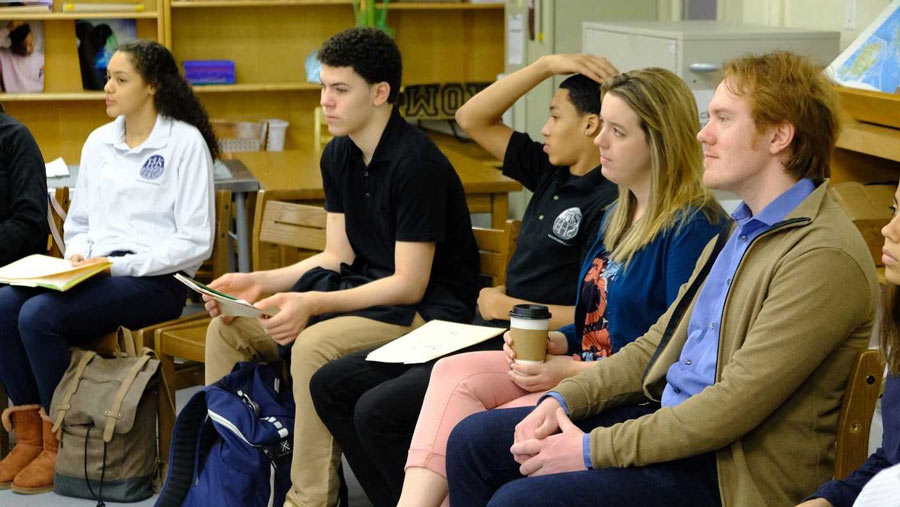


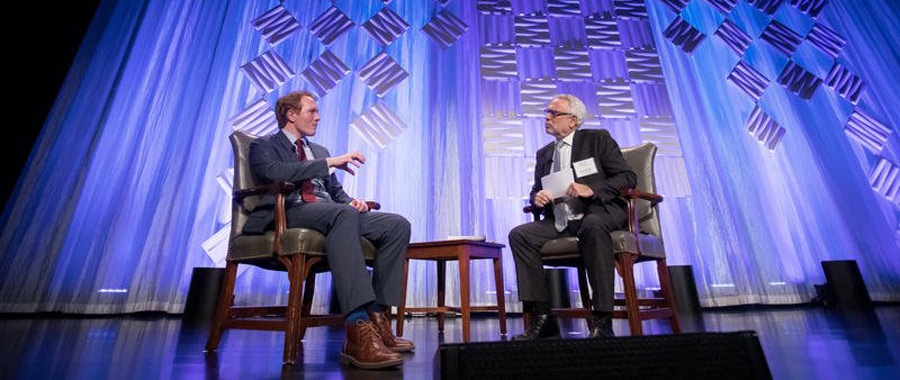

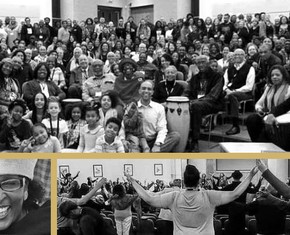
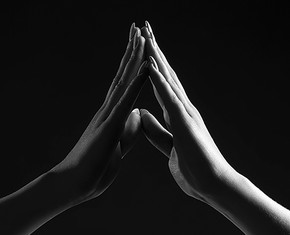
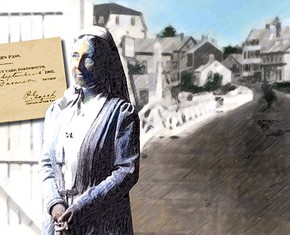









Comments
Sign in or create an account
Continue with Googleor